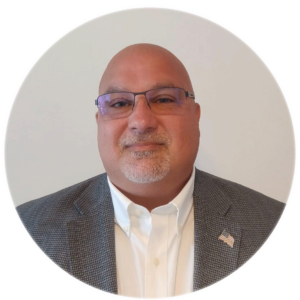Medical billing fraud continues to be a pervasive issue in the healthcare industry, causing significant financial losses and undermining the integrity of patient care. Healthcare professionals play a crucial role in ensuring accurate billing practices and upholding the ethical standards of the industry.
In this blog, we delve into three high-profile medical billing fraud cases that shed light on the extent of these fraudulent schemes and the importance of exposing such misconduct. Each case serves as a stark reminder of the need for vigilance, compliance, and unwavering commitment to the highest standards of integrity within the healthcare industry.
By understanding the key people involved, charges placed, lessons learned, and the remarkable contributions made by whistleblowers, we hope to inspire and empower you to take action if you witness fraudulent activities in your workplace. You may even be able to earn a reward of up to 30% of any funds recovered!
Join us on this informative journey as we review three compelling cases of medical billing fraud and emphasize the importance of your role in creating a transparent and trustworthy healthcare system.
High-Profile Medical Billing Fraud Cases & Their Outcomes
Case Study #1: The Healthcare Company (HCA) $745 Million Settlement
- Overview of Fraud Scheme
- The Healthcare Company (formerly known as Columbia/HCA Healthcare Corp.) was accused of violating the False Claims Act by allegedly upcoding Medicare claims for more expensive services than were rendered, billing for treatments that weren’t medically necessary, and phantom billing for services that were not performed.
- Key Players Involved
- The Healthcare Company (HCA): accused of unlawful billing practices. At that time, HCA was the largest for-profit hospital in the US.
- James Alderson: a financial officer with a Montana-based hospital, and one of the whistleblowers who brought attention to the case.
- John Schilling: a former reimbursements officer and one of the whistleblowers who initially filed a case against HCA.
- Charges
- The Department of Justice alleged that HCA “unlawfully charged for the costs of running its hospitals on cost reports submitted to the government and that it paid kickbacks to physicians to get Medicare and Medicaid patients referred to its facilities,” thus violating the Medicare Anti-Kickback Statute
- Lessons Learned
- HCA pleaded guilty to the charges and agreed to pay $745 million to settle the improper billing claims. This case is a lesson that hospitals have a duty to accurately bill for patient services and ensure taxpayer funds are being utilized appropriately.
- Whistleblower Reward
- The whistleblowers who filed the case received $100 million for coming forward.
Case Study #2: DaVita Healthcare Partners, Inc. $350 Million Settlement
- Overview of Fraud Scheme
- DaVita Healthcare Partners, Inc., was accused of violating the False Claims Act by paying kickbacks to induce the referral of patients to its dialysis clinics.
- Key Players Involved
- DaVita Healthcare Partners, Inc., one of the leading providers of dialysis services in the United States.
- David Barbetta: a former DaVita senior financial analyst in its mergers and acquisitions department.
- Charges
- The United States Department of Justice (DOJ) alleged DaVita identified physician or physician group practices with large patient populations suffering from chronic kidney disease and end stage renal disease, and offered them opportunities to become joint venture owners in DaVita wholly owned dialysis centers at below fair market value pricing. The DOJ alleged that DaVita manipulated the valuation of equity in its wholly owned centers by making certain assumptions regarding future payments for dialysis treatments in order to make the transactions financially attractive for physicians to purchase equity in its dialysis centers. The DOJ alleged that, as a result, physicians may have paid below fair market value compensation for their joint ventures investment interests and benefitted from resulting high rates of return.
- Lessons Learned
- DaVita agreed to pay $350 million to settle claims that it violated the Federal False Claims Act, and $39 million as a civil forfeiture tied to two specific transactions.
- Whistleblower Reward
- The whistleblower received a $65 million cut of the settlement under the qui tam provisions of the False Claims Act.
Case Study #3: Arriva Medical $160 Million Settlement
- Overview of Fraud Scheme
- Arriva Medical LLC was accused of violating the False Claims Act by intentionally failing to send invoices for certain procedures that led to kickbacks or other perks.
- Key Players Involved
- Arriva Medical LLC (Arriva), at one point the nation’s largest Medicare mail-order diabetic testing supplier.
- Gregory Goodman: a former employee at an Arriva call center in Antioch, Tennessee and the whistleblower who spoke out.
- Charges
- In 2021, the Department of Justice alleged that Arriva “made, or caused, claims to Medicare that were false because kickbacks were paid to Medicare beneficiaries, patients were ineligible to receive meters, or patients were deceased.” Because of this, Arriva had allegedly violated the Anti-Kickback Statute.
- Lessons Learned
- Arriva agreed to pay $160 million to resolve the false claims allegations. This case is a lesson that healthcare agencies cannot divert funds for promised services or treatments and must be held accountable throughout the medical billing process.
- Whistleblower Reward
- The whistleblower who brought the case to trial received a share of over $28.5 million from the recovered funds.
Inspiring Change: The Impact of Whistleblowers in Preserving Healthcare Integrity
The cases we have explored exemplify the critical need for vigilance and proactive action in combating medical billing fraud. As medical billers, coders, and healthcare professionals, you possess the expertise and knowledge to identify irregularities and ensure the accuracy of billing practices.
By staying informed, adhering to ethical standards, and reporting suspected fraud, you can contribute to a healthier and more transparent healthcare system. Plus, if your case is successful, you could potentially earn a reward of up to 30% of the recovered funds.
At the DJO Whistleblower Law Group, we firmly believe that whistleblowers are catalysts for change. Their courage to step forward and expose fraud not only protects the financial interests of healthcare institutions and the government but also safeguards patient care and the overall integrity of the healthcare system. We are committed to supporting and advocating for those who choose to blow the whistle on medical billing fraud, ensuring they receive the recognition and protection they deserve.
Together, we can make a difference and promote a culture of compliance, accountability, and excellence in healthcare.
Do you have valuable information that can help bring Medicare fraud to light? Speak to our experts today.

authored by Christopher J. Piacentile
Director of Investigations DJO Whistleblower Law Group


